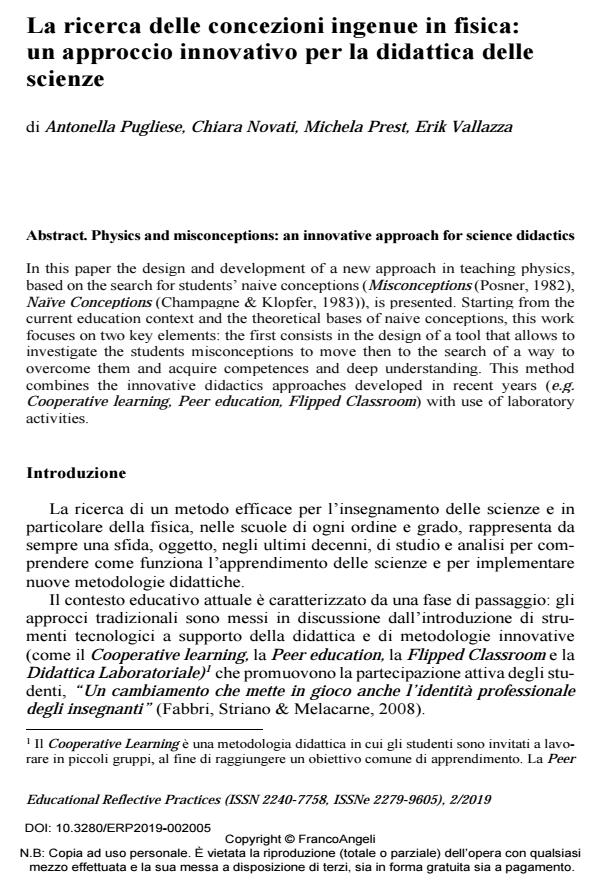La ricerca delle concezioni ingenue in fisica: un approccio innovativo per la didattica delle scienze
Titolo Rivista EDUCATIONAL REFLECTIVE PRACTICES
Autori/Curatori Antonella Pugliese, Chiara Novati, Michela Prest, Erik Vallazza
Anno di pubblicazione 2020 Fascicolo 2019/2
Lingua Italiano Numero pagine 22 P. 76-97 Dimensione file 383 KB
DOI 10.3280/ERP2019-002005
Il DOI è il codice a barre della proprietà intellettuale: per saperne di più
clicca qui
Qui sotto puoi vedere in anteprima la prima pagina di questo articolo.
Se questo articolo ti interessa, lo puoi acquistare (e scaricare in formato pdf) seguendo le facili indicazioni per acquistare il download credit. Acquista Download Credits per scaricare questo Articolo in formato PDF

FrancoAngeli è membro della Publishers International Linking Association, Inc (PILA)associazione indipendente e non profit per facilitare (attraverso i servizi tecnologici implementati da CrossRef.org) l’accesso degli studiosi ai contenuti digitali nelle pubblicazioni professionali e scientifiche
In this paper the design and development of a new approach in teaching physics, based on the search for students’ naive conceptions (Misconceptions (Posner, 1982), Naïve Conceptions (Champagne & Klopfer, 1983)), is presented. Starting from the current education context and the theoretical bases of naive conceptions, this work focuses on two key elements: the first consists in the design of a tool that allows to investigate the students misconceptions to move then to the search of a way to overcome them and acquire competences and deep understanding. This method combines the innovative didactics approaches developed in recent years (e.g. Cooperative learning, Peer education, Flipped Classroom) with use of laboratory activities
Antonella Pugliese, Chiara Novati, Michela Prest, Erik Vallazza, La ricerca delle concezioni ingenue in fisica: un approccio innovativo per la didattica delle scienze in "EDUCATIONAL REFLECTIVE PRACTICES" 2/2019, pp 76-97, DOI: 10.3280/ERP2019-002005